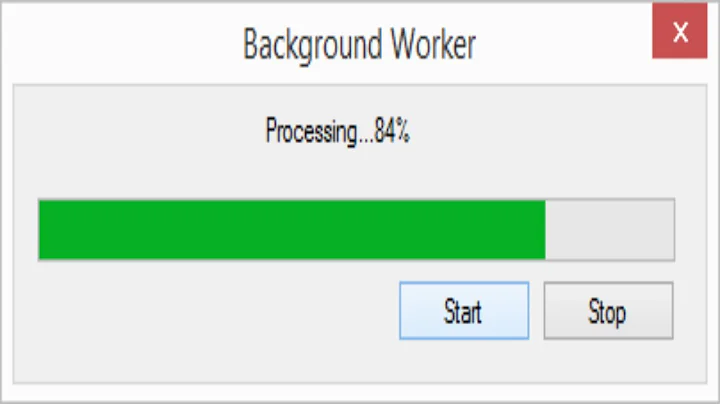VB.NET: Sending Multiple Arguments To a Background Worker
10,566
You can wrap your arguments in an object and then pass that object to the worker.
To retrieve it, you can just cast e in the DoWork to your custom type.
here's an example:
' Define a class named WorkerArgs with all the values you want to pass to the worker.
Public Class WorkerArgs
Public Something As String
Public SomethingElse As String
End Class
Dim myWrapper As WorkerArgs = New WorkerArgs()
' Fill myWrapper with the values you want to pass
BW1.RunWorkerAsync(myWrapper)
' Retrieve the values
Private Sub bgw1_DoWork(sender As Object, e As DoWorkEventArgs)
' Access variables through e
Dim args As WorkerArgs = e.Argument
' Do something with args
End Sub
Related videos on Youtube
Author by
slayernoah
SO has helped me SO much. I want to give back when I can. And I am #SOreadytohelp http://stackoverflow.com/users/1710577/slayernoah #SOreadytohelp
Updated on July 12, 2022Comments
-
 slayernoah almost 2 years
slayernoah almost 2 yearsI am trying to use a BackgroundWorker to perform tasks on a separate thread.
I am able to pass a single argument to the BackgroundWorker as below:
Send argument to BackgroundWorker:
Private Sub btnPerformTasks_Click(sender As System.Object, e As System.EventArgs) Handles btnPerformTasks.Click Dim strMyArgument as String = "Test" BW1.RunWorkerAsync(strMyArgument) End SubRetrieve argument inside BackgroundWorker:
Private Sub BW1_DoWork(sender As System.Object, e As System.ComponentModel.DoWorkEventArgs) Handles BW1.DoWork Dim strMyValue As String strMyValue = e.Argument 'Test End SubThere are only 2 overloaded methods for
RunWorkerAsync(). One that takes no arguments and one that takes one argument.I want to know:
- How can I pass multiple values to
BW1.RunWorkerAsync() - How can I retrieve these multiple values from inside
BW1_DoWork
-
 slayernoah@HansPassant I believe the answer that pacane provided is the helper class method. Could you show how to use a lambda expression to achieve this?
slayernoah@HansPassant I believe the answer that pacane provided is the helper class method. Could you show how to use a lambda expression to achieve this?
- How can I pass multiple values to
-
 slayernoah about 10 yearsCould you give an example please?
slayernoah about 10 yearsCould you give an example please? -
Pacane about 10 years@slayernoah There you go
-
 slayernoah about 10 yearsRealized that
slayernoah about 10 yearsRealized thatDim args As WorkerArgs = e.Argumentis not necessary in the example above. Looks like I can get the passed values usinge.Argument.Somethingande.Argument.SomethingElse.









